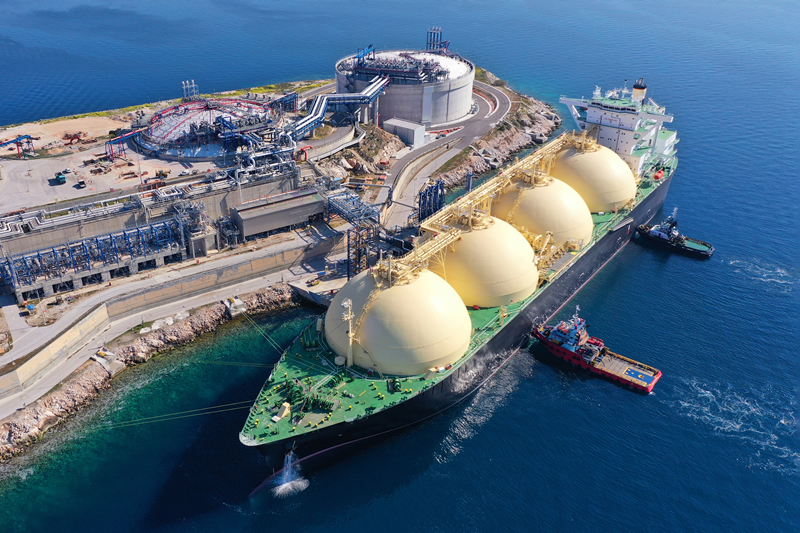LNG Fuel Bunkering Increases With New Emissions Rules
15
In just under 18 months, the Mediterranean is poised to implement stricter limits on maritime emissions. Market observers in the region are already anticipating that liquefied natural gas (LNG) will emerge as a favourable alternative to traditional and more polluting marine fuels.

Late last year, the International Maritime Organisation (IMO) adopted new regulations designating the Mediterranean as an Emission Control Area (ECA) effective May 1, 2025. This move involves a reduction in the sulfur cap of marine fuels, earning praise from environmentalists but potentially leading to increased costs for traditional bunkering. According to maritime classification society DNV, compared to heavy fuel oil, the use of LNG could result in up to an 80% reduction in nitrogen oxide emissions, nearly eliminating sulfur oxide emissions and particulate matter.
With the Mediterranean transitioning into an ECA, Jason Stefanatos, Global Decarbonisation Director at DNV, anticipates heightened interest in LNG, noting changes in business cases for vessels compared to the past. This development aligns with the global expansion of LNG-fueled fleets, with LNG-fueled vessels holding the largest share in the alternative-fueled ship order book, as reported by DNV. Currently, there are 438 LNG ships in operation, with 97 on order. DNV predicts a significant increase, reaching 505 LNG ships in 2026.
While the majority of the existing 978 LNG-fueled ships operate globally, a noteworthy 19% exclusively operate in Europe, followed by Asia at 8% and America at 5%. In the Mediterranean, the port of Barcelona, recognised as a bunkering hub, witnessed LNG bunkering operations accounting for nearly 11% of total bunkering operations in 2021. Industry coalition group SEA-LNG data indicates approximately 16 LNG bunkering locations in the Mediterranean region.
The DNV observes a steady increase in LNG bunkering activities in the Mediterranean over the past year and anticipates further growth. Drawing parallels to the North Sea's ECA designation in 2015, suggesting a similar trend may unfold in the Mediterranean, despite recognising distinct conditions.
The ECA designation would render very low sulfur fuel (VSLFO) non-compliant as a shipping fuel in the Mediterranean. While marine gasoil (MGO) remains permissible under the new legislation, LNG is expected to be more competitively priced, according to trading sources. Regardless of fuel choice there needs to be an effective Continuous Emission Monitoring System (CEMS). With our marine analysers installed on vessels all over the world, the ongoing service and support for the equipment is satisfied by our dedicated network working in and around major ports and installation locations.
The need to demonstrate environmental responsibility is key for today’s marine and offshore industries.
#protea #emissions #monitoring #cems #ftir #gas #analysers #shipping #marine
Other Articles
Carbon Capture Utilisation & Storage (CCUS) In 2026
16
Global Underground CO2 Storage Data Offers Hope Amid Rising Emissions
01
IMO Postpones Adoption Of Global Net-Zero Shipping Framework
04
Pioneering Carbon Capture Projects Ready For Construction
03
Methanol & Ammonia Deemed Ready As Zero-Emission Shipping Fuels
01
Carbon Capture Storage Reaching A Turning Point In Decarbonisation
13
CCS To Capture 15% Of Shipboard Carbon Emissions By 2050
29
Global Shipping Industry Struggles To Navigate Net Zero Transition
21
Carbon Capture Surges as Economics Policy & Industry Demand Align
14
GHG Emissions At Ports On The Rise Despite Initiatives
07
